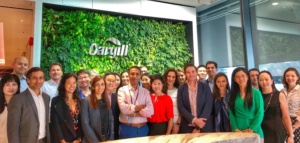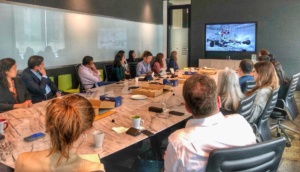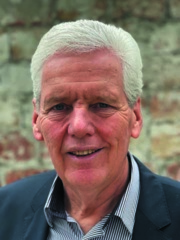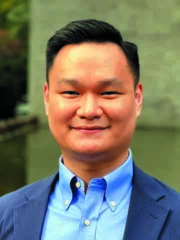Most businesses are embarking on a journey of transformation in this fast-changing business environment. Those who foster a strong vision, purpose, and culture at the very heart of the organisation will likely have a sustainable and highly engaged workforce.
Powering business transformation through culture shaping, was the topic for discussion at our recent ChapmanCG HR leaders roundtable event co-hosted by Cargill at their APAC regional hub in Singapore. ChapmanCG and Cargill have spoken together on Change and Transformation once before, in 2016, giving us an opportunity to reflect on how Cargill has arrived at its current progressive company culture.
We were joined by several Heads of HR, and Organisation Development Leaders who shared the challenges faced in this disruptive climate of persistent transformation. The general consensus being that culture is the key to a smooth transformation alongside strong business results. As Tiffany See, Head of HR for Asia at BP said, the session was “an invaluable reminder of the truly strategic role HR can play in shaping business outcomes”.
Culture and performance go hand in hand
Manish Verma, Asia Pacific Regional HR Lead, opened the discussion by highlighting the business case for change at Cargill, to transform the 150-year-old privately-held and sometimes “reticent to change, somewhat bureaucratic and complex organisation”, in his own words, to be less resistant to change and better able to act with speed and responsiveness towards their most pressing strategic challenges.
In addition to centralising their business model, Richard Yeo, APAC Talent Performance Leader, explained how HR Transformation and a new Competency Model permeates every aspect of the organisation. The model focuses on people’s behaviour, knowledge (job specific and technical expertise), ability to learn, their willingness and ability to be agile and their ability to execute in times of ambiguity, uncertainty and change.
He described how the model was both top-down and bottom-up in creation and due to this consensus approach, there was strong buy-in. The new Competency Model has been integrated into business metrics and the entire infrastructure, from influencing the hiring process to informing Performance Management and Talent Development, through to OD and Strategic Workforce Planning.
Moving away from ratings systems
This in turn led to Cargill being one of the pioneer organisations to move away from a ratings-based performance management system, instead driving high performance through an on-the-job continuous feedback culture and celebrating failure as a crucial learning opportunity. Investing in manager capability and making managers more accountable has enabled this simplified “everyday performance management” approach. This, along with a culture which allows space for the trial of new approaches to ongoing issues, has worked very well for them, and is credited with Cargill’s big wins in the marketplace.
Renata Janini, Senior VP HR APJ at SAP shared that they too have moved away from a ratings system and utilise people analytics to provide managers with important dashboards to help inform them on their team’s performance. Technology has allowed the HR function to be more mature, more of a business enabler and a value-add, As Marieke van den Berg Bos, Regional HR Director & Project Lead Future of Work from AkzoNobel remarked, “clearly culture and leadership are paramount in driving the necessary changes to get “fit for the future”.
Employee Experience (EX)
With all these long-term, positive changes taking place, Cargill saw it important to start tracking their Employee Experience (EX), defined by DecisionWise as “the sum of the various perceptions employees have about their interactions with the organisation in which they work’ rather than just employee engagement which is narrower and more focused on the workplace and productivity.
The findings from a study by Workhuman Analytics & Research Institute and IBM Smarter Workforce Institute culminating in The Employee Experience Index reveals that organisations that deliver a positive employee experience through human workplace practices like recognition, empowerment, and feedback see a significant impact on return on assets and return on sales. Many organisations use the Net Promoter Score (NPS) to measure the customer experience of their brand, Cargill decided to introduce an NPS score internally asking employees whether they would ‘recommend working at Cargill to a friend’. An employees experience is shaped by a multitude of different interactions, processes, and people across the enterprise. This complex matrix was defined by Cargill as the “Moments that Matter”, and used as a tool for HR managers to identify opportunities to communicate with employees with regards to satisfaction in the workplace.
Wearable biosensors
Maria Giovanna Vianello, Group Organisational Development Leader from Novartis shared details of the ‘pulse survey’ technology Novartis are using to measure employee satisfaction as well as the use of wearable biosensors such as Apple watches, they are piloting which are capable of measuring physiological levels (heart rate, respiration rate, body and skin temperature, blood pressure, etc.) and various surrounding parameters (distance, light, etc.) to gauge employee sentiment and wellbeing. This data enables Novartis to gain relevant information on talent and measure indicators of employee experience using a more objective, ongoing methodology. Jorge Osorio, Country HR Officer from Citi commented that “the transformation of the HR function is a reality across various sectors, and technology will enable us to redesign the way we do things and the way we add value to the business, which we are part of. It was encouraging to learn at this meeting that we are not alone in this journey.”
Maria Giovanna Vianello also presented on the Novartis Culture Transformation and how, despite divesting a few business lines recently, their share price has stayed stable, thanks in part to the strong transparent culture they are building. One of their key drivers was to reposition their Employer Brand to attract Millennials to the organisation resulting in a branding exercise to position their internal culture more “fun and funky”. They did this by working closely with their Communications Department to create inspiring social media content, including videos which spoke to young peoples’ need for purpose and meaning in the work they do and to be part of a company that helps society. These dynamic interactions such as digital employer branding, have allowed Novartis to be proactive in highlighting the appealing aspects of their culture and coupled with flexible working arrangements, inclusivity and psychological safety in the workplace, have been successful in attracting and retaining the new generation, whom their CEO Narasimhan recognises “expect to work in a very different environment”.
In summary
Maria summed up the session as having “helped me to reflect on the massive impact of culture transformation across businesses and countries, it was an extraordinary opportunity for learning and discovery”. We would like to thank Maria, Manish and Richard for presenting and all of our HR attendees for their insightful contributions.


To keep up with the latest HR trends, subscribe to our quarterly newsletter or follow us on LinkedIn. You can also check out our latest global HR opportunities, or contact our consulting team to discuss your search needs.
Key Contributors:


 Orelia Chan
Orelia Chan Stanislav Medvedev
Stanislav Medvedev Finian Toh
Finian Toh Caspar Bungay
Caspar Bungay Abby Walters
Abby Walters René Rosso
René Rosso Frieder Rummel
Frieder Rummel Kirsty Jucker
Kirsty Jucker Fleur Daniell
Fleur Daniell Tim Rayner
Tim Rayner Nicola Hasling
Nicola Hasling

 Ringo Lau
Ringo Lau Stefanie Cross-Wilson
Stefanie Cross-Wilson Devijaya Nair
Devijaya Nair Kalkin Cao
Kalkin Cao Katherine Qu
Katherine Qu Lorraine Hwang
Lorraine Hwang
